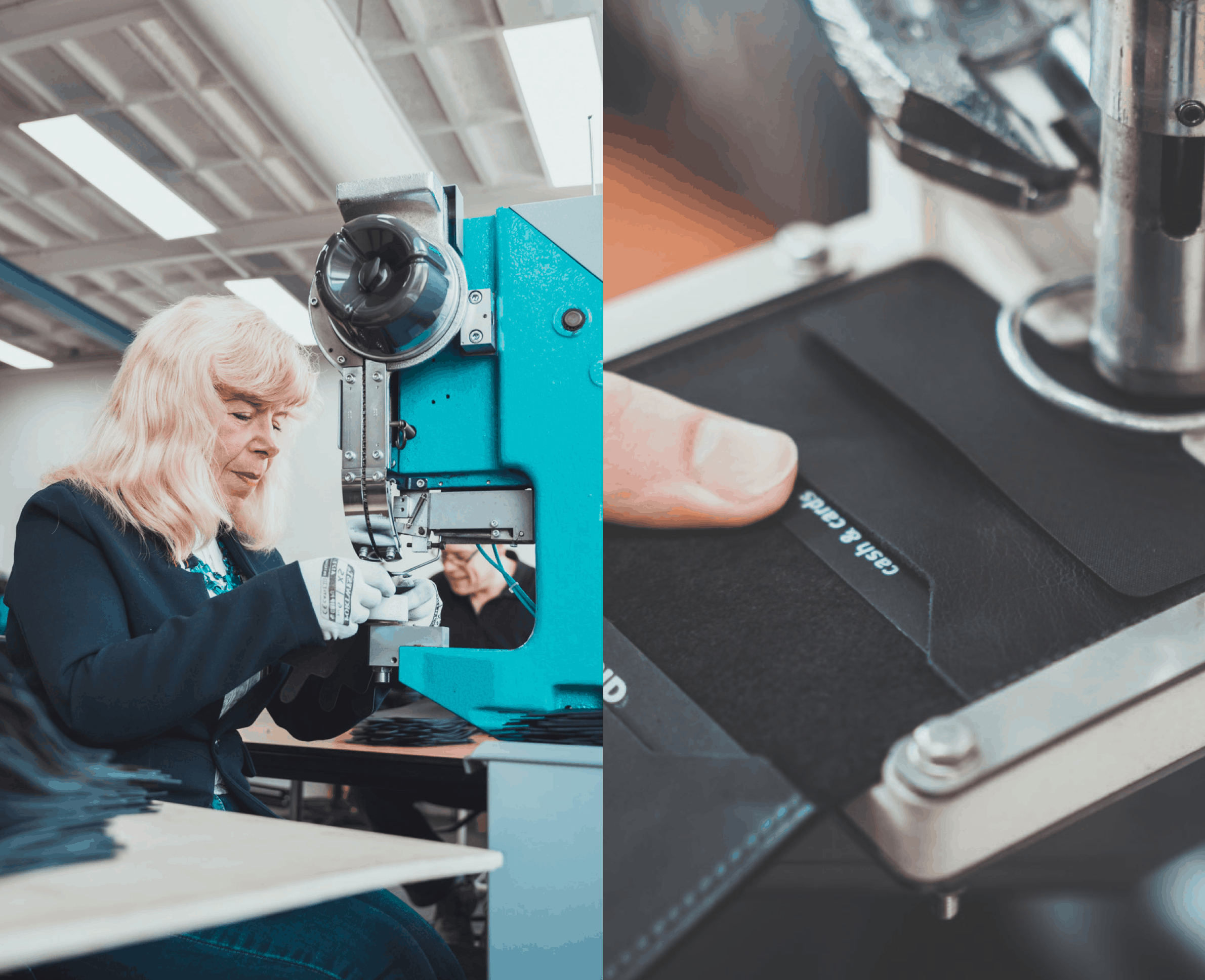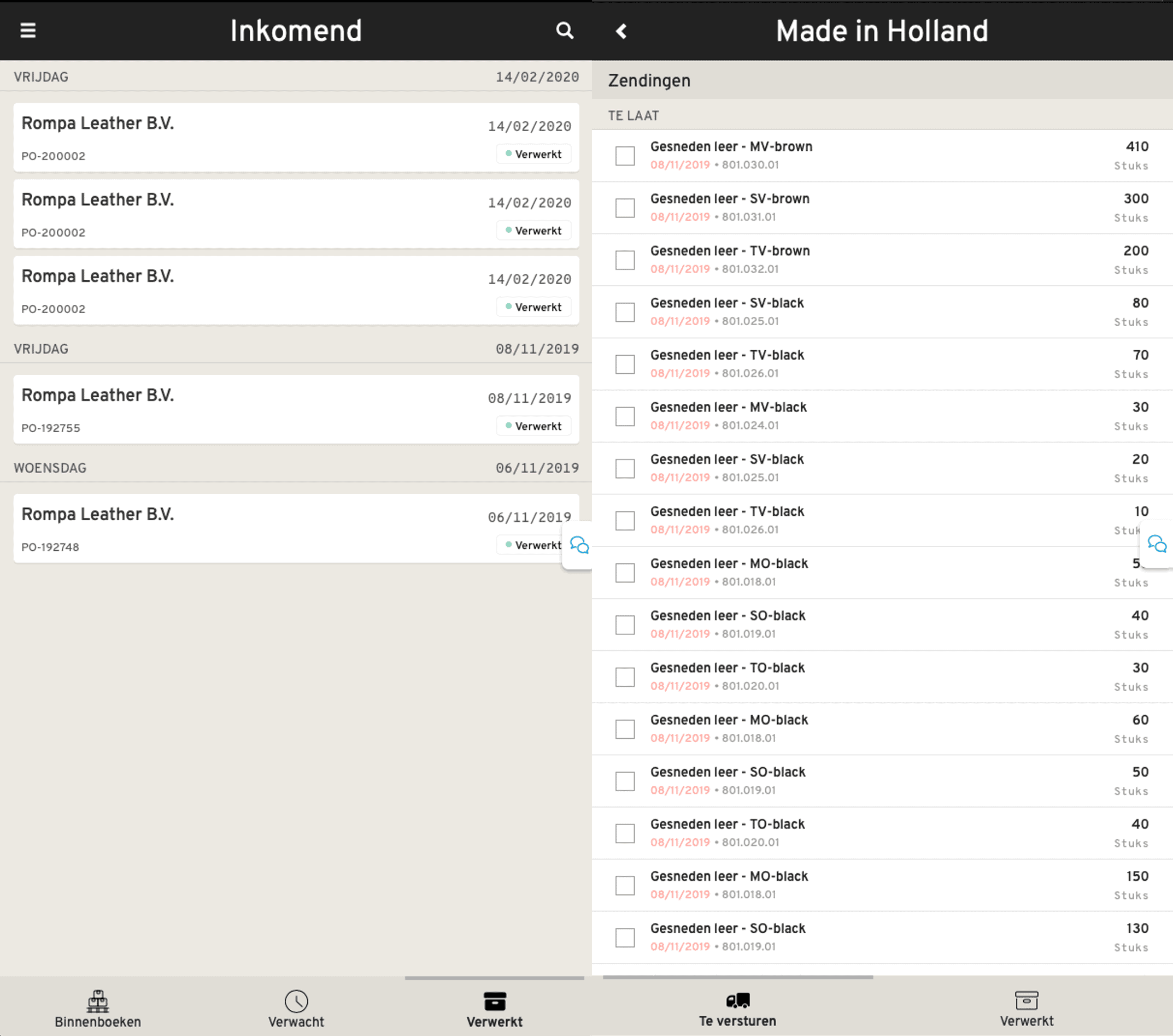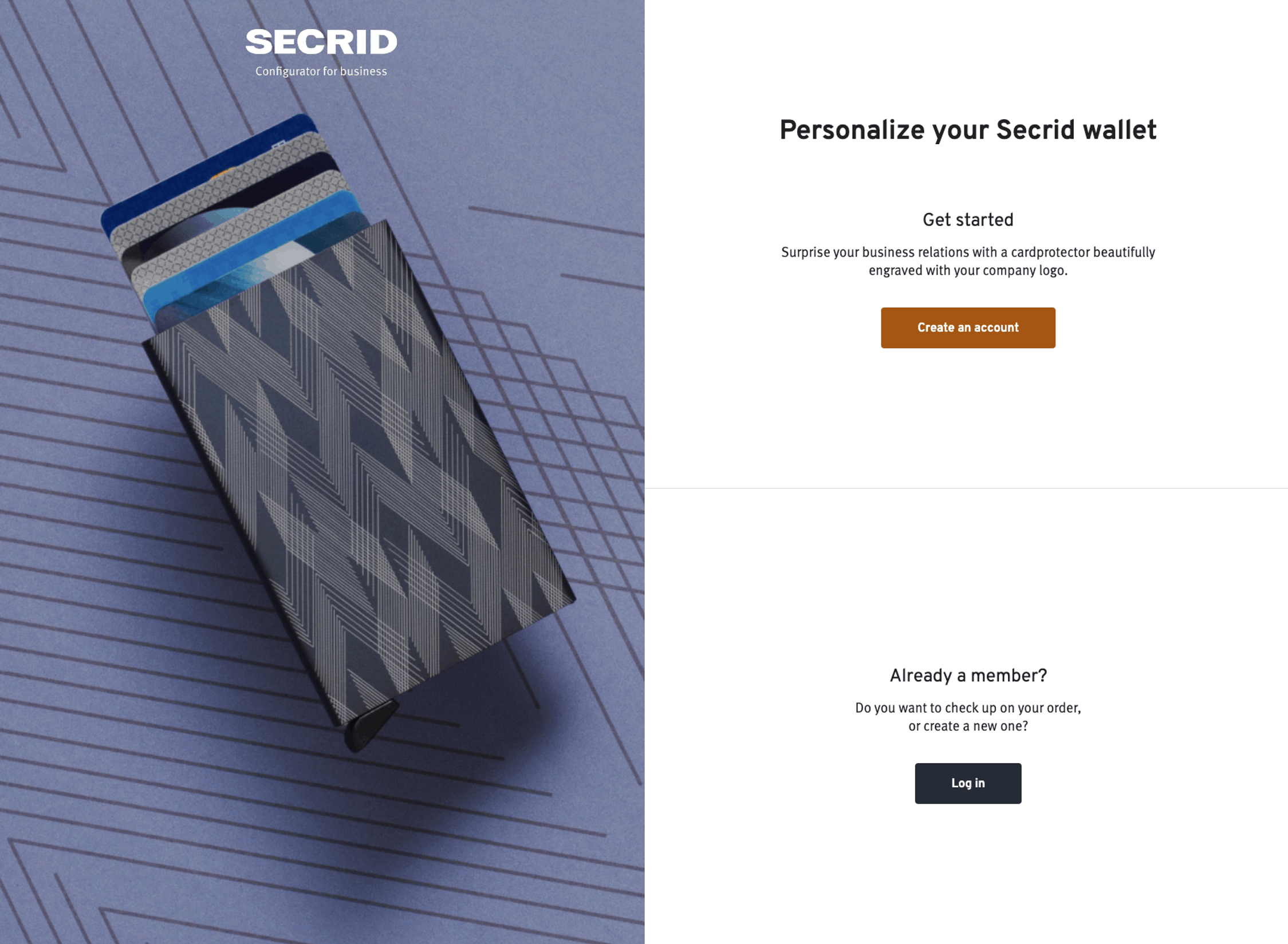Secrid Improves Supply Chain Transparency to Fuel Global Growth
It’s not often that a company successfully combines industrial design and fashion into pocket-sized essentials.
Secrid, a wallet brand from the Netherlands, has done just that. Winning the Red Dot Design Award in 2010, they invented a new type of wallet that combines two existing categories together: leather wallets and cardholders. Secrid has cemented its status as a premier wallet designer, leveraging manufacturers and suppliers located within Holland.
Secrid continues to grow and expand their business into new markets, both globally and more recently discovering a viable consumer market. Thomas Boogert, ICT Product Owner at Secrid, is at the forefront of delivering technology to drive this expansion.
Boogert turned to low-code to create mission-critical apps that support their growth across both their already successful business-to-business (B2B) channel , and newfound opportunities in business-to-consumer (B2C) channels. Read more about their global expansion and how they manage their complex web of suppliers below.
Managing a Complex Web of Suppliers
From the start, Secrid has kept their entire manufacturing process within the Netherlands, working with specialized manufacturing partners. Secrid only handles finished products, wallets that have completed the manufacturing process and are ready to be sold, but manages their supply chain and design processes in-house.

Their wallets are sold globally through a network of distributors and retailers, and they have a small but lucrative B2C channel through their online store. Secrid’s consumer market spans only 7 countries compared to the 70+ countries in their B2B network, but they are working to expand the countries that they deliver to.
Despite having a complex web of independent suppliers, they work in parallel which ultimately leads to the same products in their warehouse. The administration process behind coordination between their suppliers quickly became difficult to manage.
Boogert explains that “most of the suppliers [Secrid] has in the system don’t purchase the raw materials themselves,” rather, they receive materials from another supplier or manufacturer within their network. Because of this, it is exceedingly important that any interruptions in their supply chain operations are communicated to other vendors.
Without timely communication, downstream vendors would:
- Be inflexible to unexpected changes in the manufacturing process
- Extend their delivery timelines
- Aggravate any delays that occurred further upstream
The Excel Ecosystem Nightmare
Previously, Secrid was managing their supply chain with a disconnected ecosystem of Excel spreadsheets, inviting risk and inefficiency. Keeping up with changes in their supply chain was getting more challenging.
As Secrid’s business grows, so do their suppliers, customers, and channels, all of which requires more spreadsheets to manage, resulting in additional band-aid processes. As part of the manufacturing process, their suppliers must inform the other vendors about their progress. Information such as the amount of leather that does not meet quality standards is entered into a shared Excel file found in Dropbox.
From accidently adding an extra zero to forgetting to update the file in time, this system was:
- Prone to error
- Lacked real-time updates for their manufacturing partners
- Created three times the administration necessary due to duplication of tasks across disparate systems
Driving much of this complexity was their pricing calculations. Secrid offers a number of different customization and accessory options for their products, with some wallets available in 10 different variations. Depending on the suppliers used for each variation, the cost would change dramatically.
Mission-Critical Apps for B2B and B2C Growth
As ICT Product Owner, Boogert spends most of his time figuring out what’s blocking the business from growing, such as building solutions for opportunities in new markets or for the internal operational inefficiencies that Secrid is facing.
With the complexity of their supply chain becoming unwieldly, Boogert set out to drive efficiency, improve risk management, and remove supply chain management challenges that were preventing their company from growing.
Low-code has played a critical role in their growth path. Despite not having any significant increase in headcount, Boogert was able to create an app that provides coordination with their web of suppliers, improving quality assurance and driving efficiency in their production process.
As Boogert explains, because it’s a “closed system, you can make it easy for the user because you already know what they are supposed to receive or what they are supposed to build.” With all the information they need at their disposal, Boogert created a solution that continues to drive their growth into new markets, no longer encumbered by their Excel ecosystem nightmare.

Ecommerce Solutions for an Unexpected, but Growing Fanbase
Until recently, Secrid has been primarily focused on B2B customers. Despite this focus, Boogert explains that Secrid has “built a fan base of consumers using our products… they really liked to tell us about how much they love using their wallet.”
They are now exploring their unexpected, but growing fanbase, which would have implications to their branding, logistics, and customer service. Boogert says that he “wants to welcome those people into their family in some novel way.” From simplifying the return process to managing warranties, digitizing their customer facing processes will be a focus for the years to come.
For example, Secrid receives numerous requests for customized wallets, but fulfilling those requests is exceedingly complicated without the aid of visual tools. Simple concepts, like the fact that leather cannot be engraved, is more challenging to communicate without the help of visual direction.
Having already experienced success with their corporate gift portal, Boogert is working towards expanding their portal so that their B2C market will be able to drag and drop their customized wallet design.

Additionally, Boogert believes that low-code will enable them to build future-proof solutions. Regardless of how complex their application logic may become, any new team members will have an easier time understanding previous work because of the simplicity in model-driven development.
Low-code abstracts away from lines of code. Instead of presenting complex languages with rigid syntaxes, components of an app are abstracted and presented visually to the new team members.
“Mendix is more flexible than your average code-based solution, it’s way more readable. Someone who hasn’t worked on the project yet will pick it up and be able to read what the business logic is supposed to be doing”
Designing for Your Back Pocket: Secrid’s 10-Year Plan on Scaling Their Business Globally
Fortunately, their organization has become so large that there are separate operators for their warehouse, manufacturing, and outbound processes. As their business continues to expand and Boogert continues to iterate on their vendor relations app, he plans to integrate mobile-first design.
Boogert describes that “the operators can do their administration right away. They don’t have to go to their office, sit down at a desk, and boot up their computer.” Boogert hasn’t built their native mobile app yet, but they have focused on creating a web solution for their first version.
This is a huge opportunity that they are not currently leveraging, and as Boogert explains “it also fits nicely into the B2C, direct to consumer, strategic narrative that we’re trying to enforce.”
Boogert explains, “it’s more of a 10-year plan, this platform.” Low-code will continue to drive strategic decisions as their business grows.
With Mendix at the forefront of the consumer and operational efficiency strategies, Boogert will be able to respond to the needs of their business quickly, accurately, and without being dependent on the number of developers they can hire.